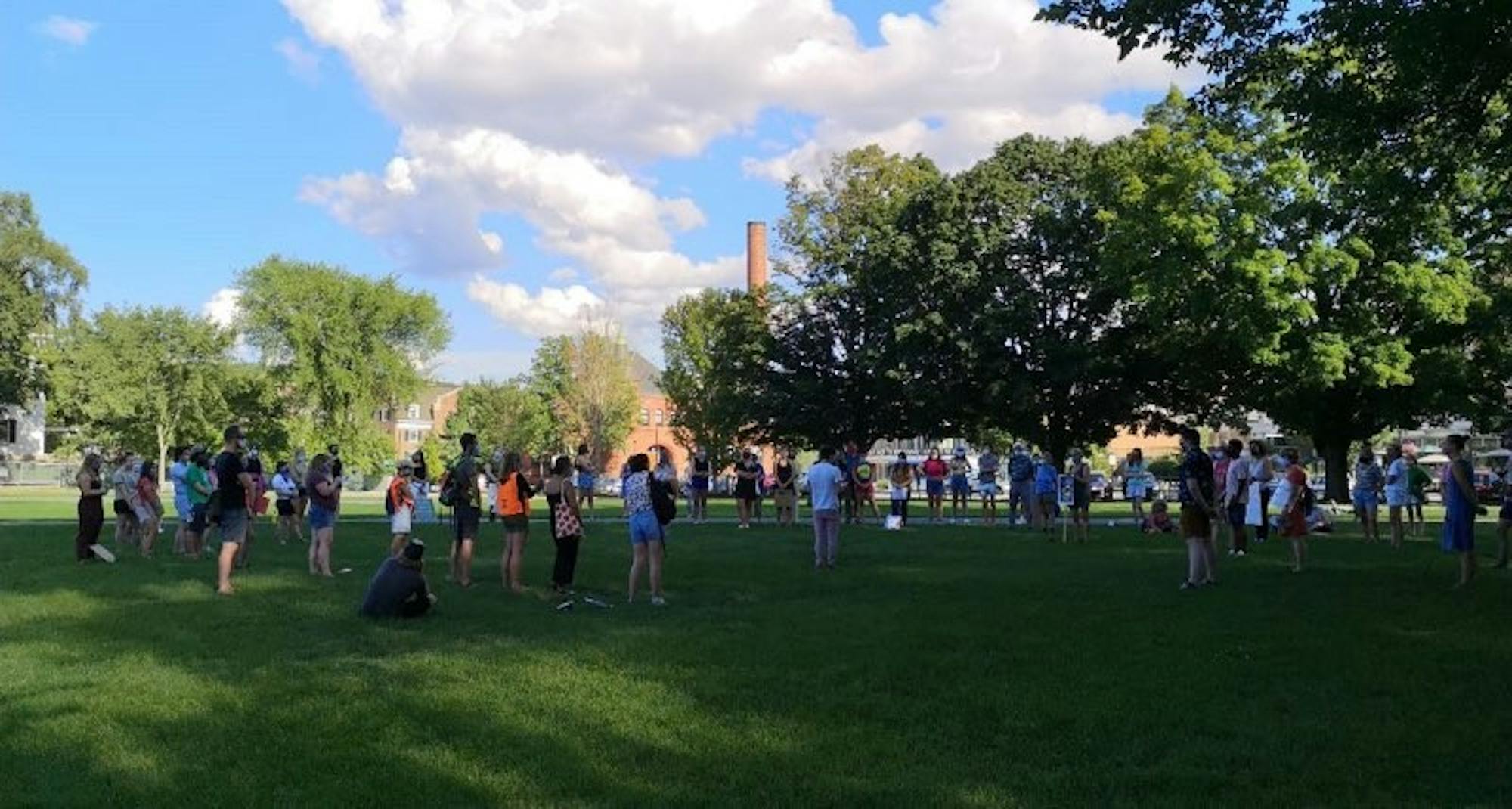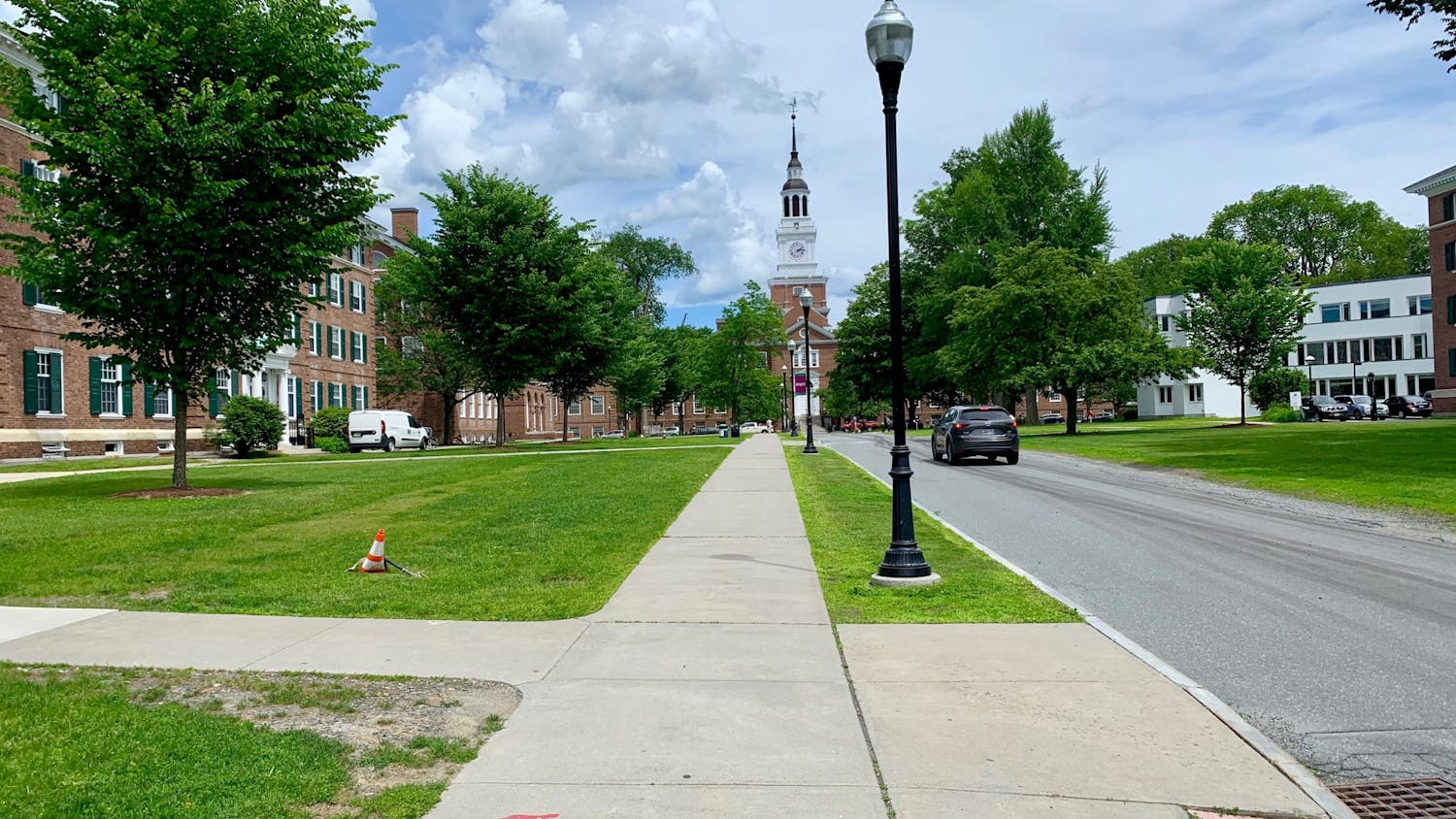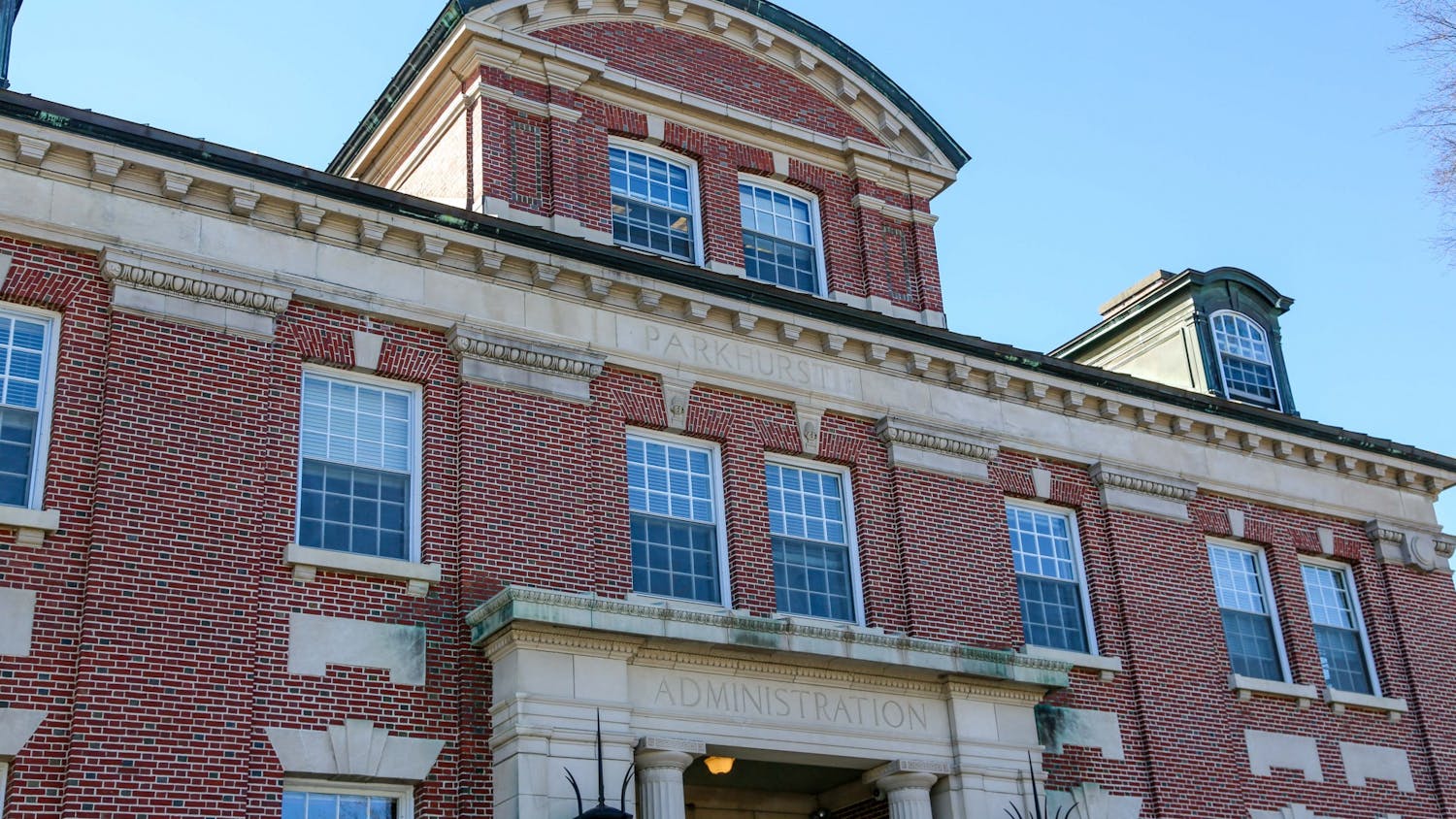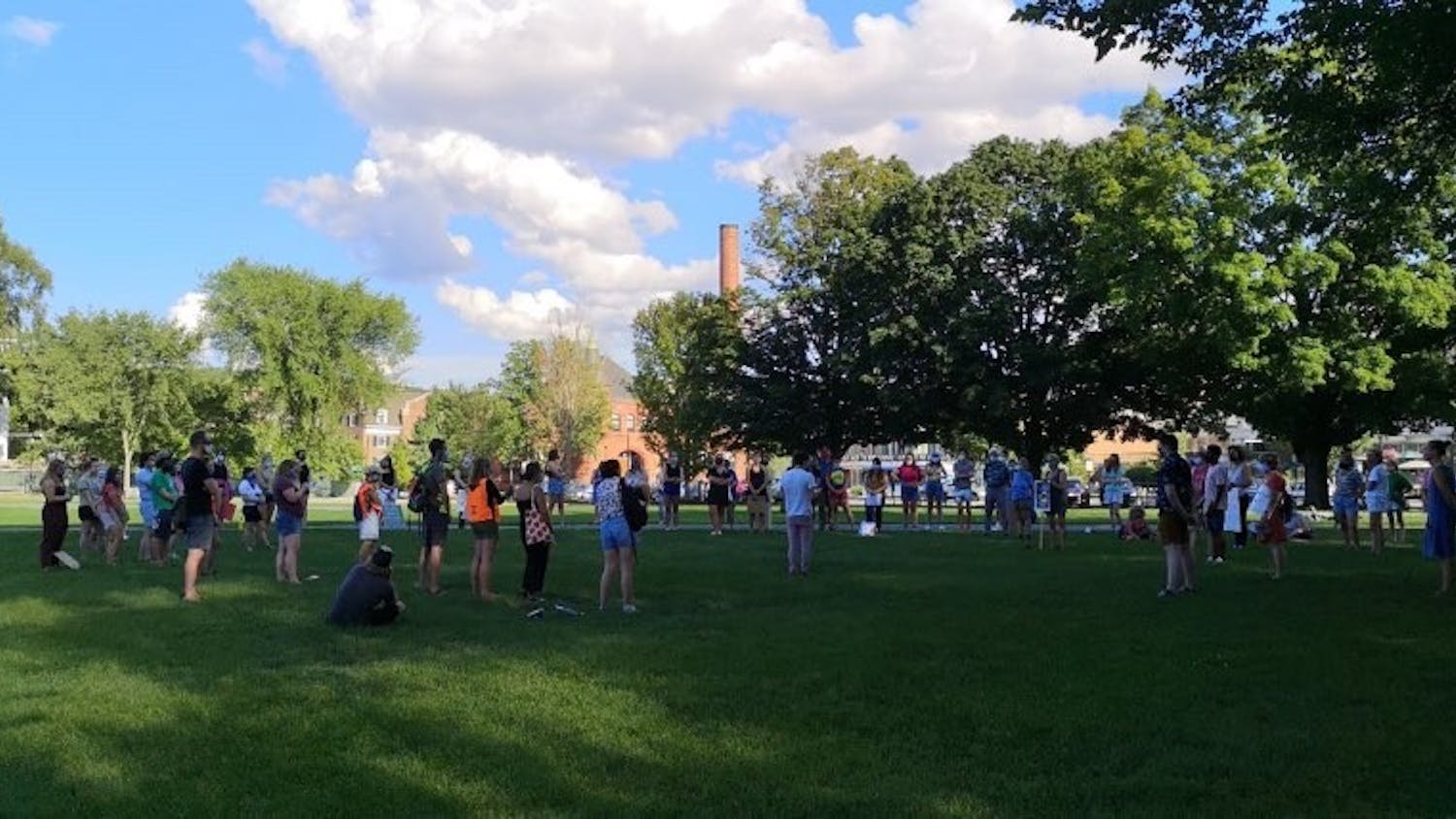This article is featured in the 2020 Freshman special issue.
On June 9, computer science Ph.D. student Maha Hasan Alshawi alleged in a Facebook post that she had been sexually harassed by her supervisor and unfairly failed on an exam by the department chair in retaliation for reporting the incident. The Facebook post kicked off a summer of controversy regarding Alshawi’s allegations, the College’s Title IX office and the administration, culminating in Alshawi claiming to have conducted a nearly four-week hunger strike and three-day thirst strike. All the while, Dartmouth maintained that Alshawi’s case had been sufficiently reviewed and that no further action was warranted. On Aug. 4, in what it described as an “extraordinary measure,” the College announced that it had begun an independent external investigation into the matter.
Alshawi’s case joins a long list of high-profile sexual misconduct cases at the College, including a recent class action lawsuit in which a group of female students alleged years of misconduct by three former professors in the psychological and brain sciences department. In fact, the start of Alshawi’s hunger strike fell on the same date as a federal judge’s final approval of the settlement in that case.
Alshawi alleges sexual harassment, retaliatory academic action
Alshawi wrote on Facebook that she had been sexually harassed by her supervisor, computer science professor Alberto Quattrini Li, on two separate occasions during the fall of 2019. Alshawi alleged that the first instance of harassment occurred in November 2019 when Quattrini Li pretended to retrieve something from his desk while “touching himself,” and that the second occurred when Quattrini Li allegedly touched himself again while writing on a whiteboard in December. In her June 9 post, Alshawi also wrote that Quattrini Li entered her office with a master key without permission and allegedly told her that her office was not her own property.
After notifying Quattrini Li that she would report the alleged harassment to Dartmouth’s Title IX office, Alshawi said that computer science department chair Prasad Jayanti retaliated against her in COSC 31, “Algorithms,” a course in which she was both a student and a teaching assistant. According to Alshawi, Jayanti would not send her the problem solutions necessary for her to hold office hours as a TA for COSC 31, allegedly to “abuse” and “punish” her for filing a report against Quattrini Li.
The “most gross abuse” that Alshawi said she faced from Jayanti was that he failed her on her COSC 31 exam and gave her a different problem than other students — one that had no solution — on her COSC 31 exam. Alshawi posted screenshots of both questions on Facebook, writing, “We don’t have to bring someone professional to prove this.” She added that Jayanti gave her a grade of “low pass” for her performance as a teaching assistant.
Alshawi wrote that she contacted the Title IX Office and the Guarini School of Graduate and Advanced Studies about her case on Feb. 5, but the Title IX office “refused” to investigate the incidents, allegedly telling Alshawi that “there should be more harassment reports from [Alshawi] and from different people against the same person to take action against [Quattrini Li].” She also said that she reported her experience to associate dean of the faculty for the arts and sciences Daniel Rockmore, who she claims told her that there was “no indication that Professor Jayanti violated any professional obligation or any Dartmouth policy.”
Alshawi launches a hunger strike
Over the next month, Alshawi continued to voice her frustration with the College through Facebook posts. She wrote in a June 28 post that she had received a “fake report” from Provost Joseph Helble about her case in which she claimed “Dartmouth flipped all the truth into false information.”
On July 14, Alshawi wrote that she had begun a hunger strike that day at noon, citing the alleged “unfair assessment” of her case and that the Title IX office “refused to look into any information or evidence from [her] side.” In a July 16 post, Alshawi said that she would end the strike if the College opened an investigation into her case and changed her “low pass” grade in COSC 31.
From the start of the hunger strike, supporters expressed concern for Alshawi’s health and well-being, stressing that they did not want her to experience lasting health issues or death because of her strike.
“If God forbid something happens to you — and I’m praying with all my heart that you can stay happy, healthy and alive — this world will contort not only your story but also your cause,” one supporter wrote on Facebook after Alshawi warned that the strike might cause “a permanent disorder to [her] health, especially to [her] internal organs and [her] brain cells.”
“Please drink water and start to eat — you need to live to see the results of your efforts,” wrote another supporter several weeks later. “You can do more to support your cause if you are alive to continue this work.”
In a July 16 statement, the College wrote that previous reviews of the case found that “no further investigation or other action [was] warranted or appropriate.” It added in a July 24 statement that Alshawi’s case had been properly reviewed by the Title IX office, the Office of the Dean of the Faculty, the Department of Safety and Security, the Office of the Dean of the Guarini School of Graduate and Advanced Studies and the Office of Institutional Diversity and Equity.
The College also offered to publicly release the report on Alshawi’s case, but Alshawi refused to consent to its release unless it was first revised to match her account of events. She claimed that the report from the Title IX office changed the location and “nature” of the events she reported, though she said that Title IX coordinator Kristi Clemens had told her the discrepancies in the report were due to “miscommunication” between departments.
On July 21, seven days after Alshawi began her hunger strike, Dartmouth announced that it would appoint an external investigator to open another review of Alshawi’s claims if she ended her hunger strike, sought medical attention and could show that she was not in danger, reversing course from previous statements. However, Alshawi wrote in a July 24 Facebook post that she was “waiting to receive a letter from the school that they are willing to conduct an investigation on [her] case unconditionally to end the strike.”
Alshawi said that she would continue her strike until the College promised her an “unconditional” investigation. She also applauded Dartmouth students and Upper Valley residents protesting in Hanover on her behalf.
Attiya Khan ’22, who was one of Alshawi’s core organizers and supporters, said it was “difficult to reconcile” her responsibilities as a friend with her responsibilities as an organizer.
“There had to be a balance struck between reaching out to her and expressing concern personally as a friend, but also recognizing that, ultimately, she has every right to still make whatever final decision she wants to make about her body,” Khan said.
On Aug. 3, the 21st day of her Alshawi’s alleged strike, Alshawi announced on Facebook that she would begin a thirst strike as well as a hunger strike, stating that she would consume no food or water until the College opened an investigation.
“I don't know how long people can live without drinking water after hunger striking for 3 weeks, but we will all find this out soon,” she wrote. Ordinarily, a healthy person can survive only days without drinking water, and that time frame is shortened when fewer calories are consumed, according to a paper made available by the National Institutes of Health. Following Alshawi’s post, Facebook users expressed concern about Alshawi’s thirst strike.
“Please don’t do this,” one commenter wrote. “Dartmouth has given you almost everything you have asked for. You have lots of supporters who will ensure the investigation happens.”
In a second Aug. 3 post, Alshawi said that the College had informed her that they would launch an external investigation “immediately,” but that it had not specified an exact start date. She said that she would continue her strike, ending only once she was informed of the time and date of the start of the investigation and the name of the investigator.
In an Aug. 4 statement, the College wrote that it would open an external investigation “in addition to the extensive assessment and multiple reviews Dartmouth has previously undertaken” of Alshawi’s case “in the interest of [Alshawi’s] safety and in keeping our commitment to Ms. Alshawi.”
In her Aug. 5 Facebook post, Alshawi said that she still had not received confirmation from the College that the investigation had begun. She concluded her post by writing, “this is my last post,” prompting concern among her supporters.
“Why is this your last post?” one supporter asked. “There has to be something you can do where you don’t kill yourself … there needs to be a better way.”
On Aug. 6, the College named attorney Maureen Holland, who served as interim Title IX coordinator at Baylor University and has previously investigated sexual harassment claims at several higher education institutions, as the external investigator for Alshawi’s case.
Alshawi said she ended her 25-day strike once she received word from Holland. She wrote on Facebook that she “[looks] forward to working, in good faith, with the independent investigator to ensure that [her] allegations are investigated fully and fairly.”
The investigation is currently ongoing, and no information has been released about its progress. Both Alshawi and Klemens declined to comment on the investigation.
Students react to Alshawi’s strike
Throughout the hunger strike, some Dartmouth students and community members organized events to raise awareness about Alshawi’s case and demand that the College launch an investigation. The events included a sit-in in front of College President Phil Hanlon’s house and a march through downtown Hanover.
Alshawi’s supporters also organized email campaigns directed to the Title IX office and, according to the “Justice for Maha Hasan” Instagram page, contacted College donors to discourage them from continuing donations until Alshawi’s demands were met.
For survivors of sexual assault, as well people who have suffered from self-harm and disordered eating, responses to Alshawi’s hunger strike ranged widely because, according to Dick’s House staff counselor Alexandra Lenzen, “survivors aren’t a monolith.”
Lenzen said that some survivors of gender-based violence may have felt empowered by Alshawi’s protest and the activism around her case. However, Lenzen said that for others, information about Alshawi’s allegations may have brought up feelings of times they disclosed their experiences and were not believed.
Gabi Cooper ’21, outreach chair for the Student and Presidential Committee on Sexual Assault, said that while it is incredibly important for survivors of sexual assault and harassment to feel supported, she recognizes that the College is forced to work within the limits of federal Title IX regulations.
“Something that we have really noticed as of late and are trying to focus on and trying to translate to upper-level administration is very often the inadequacy of Title IX to respond to some incidences of sexual violence,” she said. “We recognized that it's an inadequate framework beforehand, but [Alshawi’s] case really brought into the spotlight that there are some instances where it's just not going to be the best way to go.”
Cooper said that SPCSA is researching institutions that address incidents of sexual misconduct from the standpoint of restorative justice and that she feels the administration is willing to consider these alternatives.
“I think what would result in the school paying more attention to survivors and their allies and these calls for the school to do more would be a general cultural shift away from these more legal frameworks of Title IX,” she said. “I think it's just hard when you are an adult in an office all day, not a student on the ground going through class, interacting with others. But they are willing to listen.”
Strike prompts conversations on mental health
Alshawi’s hunger strike also generated discussions of mental health on social media, including on Facebook and the anonymous discussion app Librex. Some of Alshawi’s critics blamed the hunger strike on poor mental health.
When Alshawi announced the start of her hunger strike, multiple Facebook users posted comments that directed her to suicide prevention hotlines. Facebook users also expressed concern about suicide throughout the strike, including when Alshawi detailed the physical symptoms she experienced due to the hunger strike, when she began her thirst strike and when she wrote “this is my last post” in a Facebook post.
Other users encouraged Alshawi to seek care for her mental health.
“Your level of desperation is disconcerting,” one commenter wrote. “Have you been able to seek counseling?”
Another commenter, after acknowledging the “pain and suffering” Alshawi allegedly endured because of College faculty and administration, asked her to “not allow their actions [to] affect [her] mental health and physical health.”
Some Dartmouth students and community members spoke out against attributing the hunger strike to a mental health disorder.
Lenzen said that attributing actions like Alshawi’s hunger strike to poor mental health can be harmful both to the individual performing the action and to others who have mental health diagnoses.
“Any time that, without sufficient knowledge or inside information on a person’s mental health history, we try to make claims about how their mental health is impacting their decision making, I think that can be really disempowering,” Lenzen said. “For people who have mental health diagnoses, it can feel further stigmatizing.”
Rachel Florman ’21 said that Alshawi’s critics use accusations of mental health conditions as a way to dismiss her entire protest.
“Just because people disagree with her choice of protest, it does not mean that any action she took was or was not merited,” she said.

Lauren ('23) is news executive editor for The Dartmouth. She is from Bethesda, Maryland, and plans to major in government and minor in public policy.




